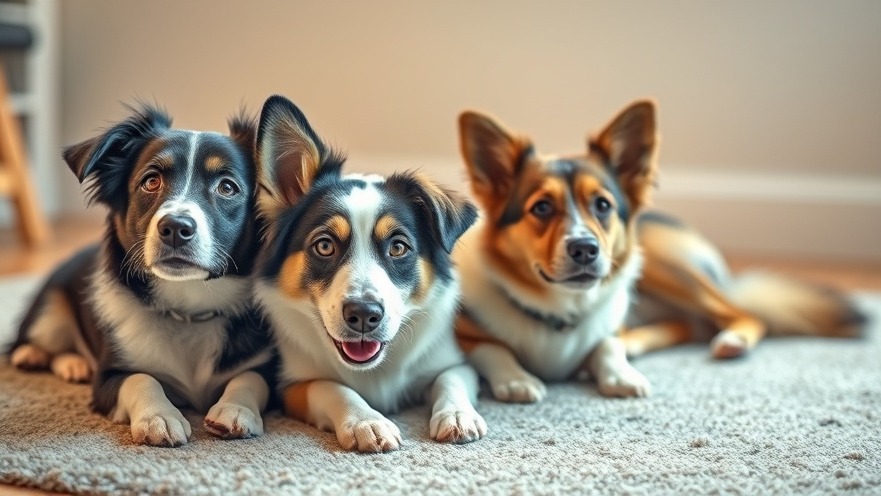
Unleashing the Power of Positive Reinforcement in Dog Training
Understanding a dog's destructive behaviors can be frustrating, especially for dog owners eager to cultivate a harmonious living environment. As outlined in the video STOP fighting your dog’s love of DESTRUCTION ❌(do THIS instead!), the solution isn't to fight against these behaviors, but rather to redirect their energies positively. When we shift our focus from punishment to more effective training methods, we not only benefit our pets, but also enrich our connection with them.
In STOP fighting your dog’s love of DESTRUCTION ❌(do THIS instead!), the discussion dives into effective strategies for canine training, exploring key insights that sparked deeper analysis on our end.
Transforming Destructive Energy into Positive Play
Dogs, especially young puppies, often exhibit destructive behaviors as part of their natural exploration instincts. Rather than chastising them for chewing on furniture or ripping apart their toys, consider it an opportunity to channel this energy. Engage your dog in stimulating activities — such as interactive toys or agility training — to foster their enthusiasm in a manner that's constructive instead.
The Mental Health Benefits of Canine Companionship
For Sacramento's health-conscious adults, particularly busy parents and active seniors, dogs offer more than unconditional love; they also significantly enhance our mental well-being. Positive interaction through play or training can decrease stress levels and promote a healthier lifestyle. Incorporating your dog into your wellness journey, such as going for walks in local parks or trails, not only benefits the pet, but enhances the owner's physical and emotional health.
Practical Tips for Training Your Dog
1. Identify the Triggers: Determine what drives your dog to behave destructively. Are they bored? Anxious? Identifying these triggers can help redirect their behavior appropriately.
2. Create Engaging Environments: Invest in interactive toys or puzzles that challenge your dog mentally. These can keep them entertained and occupied, reducing the urge to destroy household items.
3. Implement a Training Schedule: Consistency is key in dog training. Schedule regular sessions to reinforce desired behaviors, rewarding them with positive reinforcement such as treats and praise.
Building a Stronger Bond Through Training
One of the most rewarding aspects of dog ownership is the bond formed through training sessions. This engagement fosters mutual trust and understanding. The more time you invest in training, the more fruitful your relationship will be, leading to a better-behaved dog who is a joy to be around.
The Importance of Community Support
As Sacramento's busy parents and wellness enthusiasts engage with their pets, community support plays a vital role. Local dog training classes or workshops can provide guidance and a network of fellow dog lovers sharing similar challenges. Look for community events, parks, and trails where you can meet other pet owners, share experiences, and learn from one another.
Embracing Eco-Friendly Practices in Pet Care
In line with holistic healing and eco-living lifestyles, consider sourcing sustainable products for your pets. Opt for environmentally friendly dog toys, organic pet treats, and biodegradable waste bags. Such choices not only contribute to a healthier planet but also reflect a commitment to a balanced and mindful lifestyle.
Moving Forward with Love and Understanding
Ultimately, fighting your dog's love for destruction is counterproductive. Instead, approach these behaviors with compassion and strategic redirection. By embracing methods that foster a loving relationship with your dog, you will cultivate a happier home for both you and your four-legged friends.
Take a moment today to assess how you interact with your canine companion. Try incorporating some of these strategies into your daily routine, and observe how your dog flourishes.
If you're seeking further insights, tips, and detailed guidance on canine training and behavior, consider joining local workshops or subscribing to newsletters focused on positive reinforcement techniques. The journey towards a well-behaved and happy dog is just beginning!
 Add Row
Add Row  Add
Add 





 Add Row
Add Row  Add
Add
Write A Comment